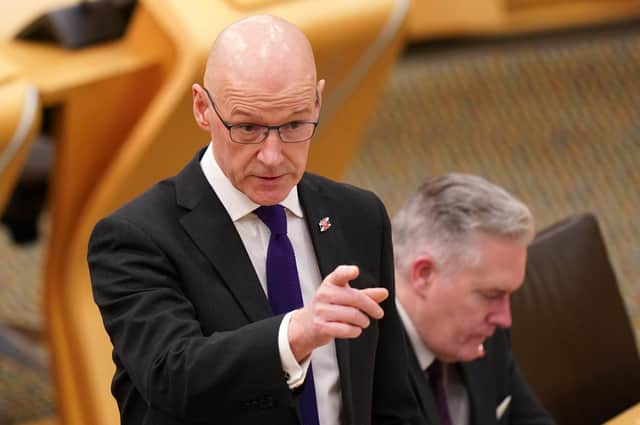SNP ministers must not dismiss deeply alarming plea for help as Scottish council funding crisis grows – Scotsman comment


Yet in recent years, they have been put under increasing pressure by the paucity of funds from the Scottish Government. This has been accompanied by extra demands placed upon them, with ministers essentially using council chequebooks to pay for their promises. Covid, soaring energy bills, high inflation and interest rates, the need to resettle Ukrainian refugees, and increased demands for help from people struggling in the cost-of-living crisis have meant that pressure has escalated.
In an unprecedented and worrying letter to Deputy First Minister John Swinney, all 32 council finance directors have now warned they face an existential threat. It comes after two Conservative-run councils, Kent and Hampshire, told Rishi Sunak they could be forced to declare bankruptcy.
Advertisement
Hide AdAdvertisement
Hide AdThe letter to Swinney warned that to continue the current model of funding “against the backdrop of such exceptional circumstances places councils, and the services they deliver, at peril”. They said they felt they had “to share immediate concerns regarding the sustainability of councils”.
The response, from public finance minister Tom Arthur, was disappointing. “We understand the concerns”, he said but the Scottish Government was “treating councils fairly”.
It felt like a dismissive reply to an opposition politician. But these people are civil servants, doing their duty to warn of a serious and real crisis. With councils so close to breaking point, it demands a serious and real response.
If there truly is no more money, then ministers should, at the very least, agree to the letter’s request to allow councils “total flexibility” over their budgets, so they can decide how to make best use of their funds. As with the NHS, it is untenable to insist on a level of service without providing the requisite funds.
Council affairs can seem mundane, with their concerns often lost in the hubbub of national politics. But voters will notice if councils are forced to cut jobs, spending and their most vital services, as life in Scotland could start to feel distinctly unpleasant. Ministers, who appear stuck in a mindset that views everything through a party political lens, must start treating this crisis with the seriousness it deserves.
Comments
Want to join the conversation? Please or to comment on this article.